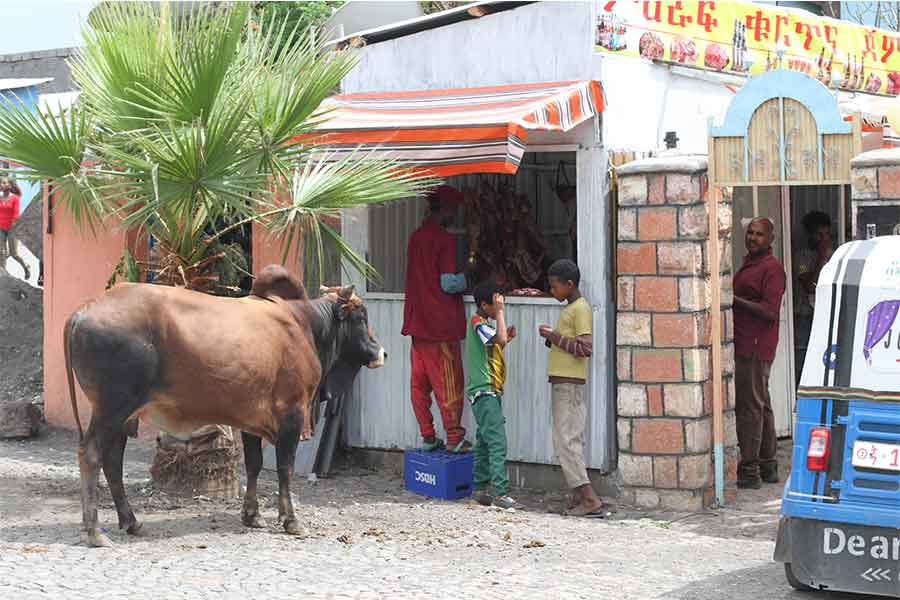
Last week, on a Friday, I visited the National Theatre, a landmark since opening in the 1950s, to watch a show. Getting there was a drama by itself.
I called Feres, a taxi-hailing company, for the first time. As I was in a rush to be much earlier from the time the show started, I straight dialled a number I got on the application’s details on the internet. With a voice that sounds tired, yet with a how-come-he-called-here tone, I was referred to their central service centres. I relayed where I wanted to go and was asked to wait for a number.
It was instantly that the taxi came and swung my mood. En route, the power of word of mouth came to my mind, as I heard about the show I was heading to on social media. It was reported that Honoré de Balzac spread the rumour that the premiere of his play Les Resources de Quinola was sold out to prompt demand by exaggerating the play’s popularity. A plan backfired as hordes of would-be attendees returned home, disappointed, before reaching the theatre. I convinced myself as both scenarios would be welcome as I had been to the show five times before.
I arrived at the Ethiopian National Theatre, with its amazing ambience with a promise of much more to come. The show Alqash ena Zefagne, loosely translated to “The Pleuerer and The Bard.” A play written by Fiseha Belay Yimam, it depicts grief and celebration, which seem like strange bedfellows at first glance, yet both emotions that overflow. The play was about the ritual practices that surround wedding and mourning as rites of passage, helping individuals and their communities make sense of gain and loss through a renewed focus on continuity.
While I was waiting along the queue, I was engulfed with thoughts about the theatre's offerings, and with all the play’s pathos, it used to pristinely proffer with the quality or power to evoke feelings of tender pity, compassion or sadness.
Or whether it proves Alexander Pope’s ‘bathos’ quite the opposite, to show descent from the sublime to the depths of the ridiculous?
I was also pondering over the practice of employing mourners for a price to evoke memories of the deceased for rituals in Addis Abeba, before the lead character of the show, in my view, the very promising Kidist Biruk, was even born.
Anton Chekhov wanted in his plays what he wanted to happen in life. In reality, people do not usually kill each other. They talk. So all the actors did their utmost in their script interpretation and the dramatic essence of the role to talk, wrapped in the array of emotions repertoire of the play through its more or less deeper understanding. Above all, the two protagonists epitomized celebration and mourning, with songs and long mournful sorrow-laden wails. Last but not least, it leaves one with wonder for more work from production design, staging and lighting as such technical aspects could have helped the dialogues resonate even more.
It is with enthusiasm that I welcome the upsurge of plays on the stage, especially in the aftermath of COVID-19, and I have a plan to attend two shows every week. Thanks to the burgeoning taxi-hailing industry, I do not even have to worry about being late. If we love theatre, this is time for us to clarify, amplify and glorify the stage, especially on social media.
Too often, we are found complaining about the quality of local productions. But content will not improve unless the arts attract creative people. For this to happen, they need to be supported, not in any sophisticated way but by going to shows and admiring their work.
PUBLISHED ON
Mar 19,2022 [ VOL
22 , NO
1142]


Fortune News | Jul 23,2022

Radar | Jul 13,2019

View From Arada | Jun 11,2022

Radar | Nov 19,2022

Radar | Apr 13,2019

Commentaries | May 23,2020

Editorial | Jul 02,2022

Radar | Jul 13,2019

Fortune News | Aug 24,2019

Radar | Jul 03,2021

Dec 22 , 2024 . By TIZITA SHEWAFERAW
Charged with transforming colossal state-owned enterprises into modern and competitiv...

Aug 18 , 2024 . By AKSAH ITALO
Although predictable Yonas Zerihun's job in the ride-hailing service is not immune to...

Jul 28 , 2024 . By TIZITA SHEWAFERAW
Unhabitual, perhaps too many, Samuel Gebreyohannes, 38, used to occasionally enjoy a couple of beers at breakfast. However, he recently swit...

Jul 13 , 2024 . By AKSAH ITALO
Investors who rely on tractors, trucks, and field vehicles for commuting, transporting commodities, and f...

Oct 4 , 2025
Eyob Tekalegn (PhD) had been in the Governor's chair for only weeks when, on Septembe...

Sep 27 , 2025
Four years into an experiment with “shock therapy” in education, the national moo...

Sep 20 , 2025
Getachew Reda's return to the national stage was always going to stir attention. Once...

Sep 13 , 2025
At its launch in Nairobi two years ago, the Africa Climate Summit was billed as the f...